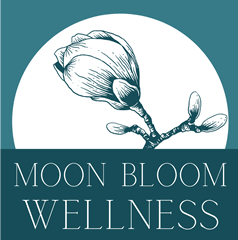Has anyone ever told you to be nice to yourself? Self-compassion involves relating to yourself in a positive way and is different than self-esteem, though the two terms are sometimes used interchangeably when people talk about feeling better about themselves. In this post, I’m going to explore some of the key differences between self-compassion and self-esteem, and why self-compassion is a better pursuit if you want to improve your well-being.
Learn to cultivate self-compassion through Online Counseling in New Jersey
Do you feel like you would benefit from cultivating self-compassion? Contact me to learn more about working together through online counseling in New Jersey.
I now also offer Online Counseling in Pennsylvania, contact me to learn more.
Issues with self-esteem
Self-esteem, or how positively we evaluate ourselves, has frequently been viewed as essential to improving life satisfaction. Having high self-esteem can mean experiencing higher levels of happiness, however there can also be significant costs. High levels of self-esteem have been correlated with narcissism. 1 It can also cause people to inaccurately assess themselves in relationship to others by thinking they possess more positive traits than other people.2 Self-esteem does not cause someone to behave in a more positive way, either. People with high self-esteem are no less aggressive than people with low self-esteem, and are just as likely to be bullies.2
Self-esteem is a well-intentioned concept with the goal of helping people feel more positively about themselves, and even though self-esteem has proven to be problematic, the goal of feeling more positively about yourself is still essential for well-being. As self-esteem has fallen out of favor due to some of the issues mentioned above, self-compassion has gained momentum as a way to improve your relationship with yourself.
Why cultivate self-compassion?
Self-esteem asks you to feel better about yourself, often in comparison to those around you, self-compassion is not contingent upon how anyone else is doing in relationship to you. There’s no pressure to be better than anyone. Self-compassion asks you to be kind to yourself in a nonjudgmental way, accepting imperfections as part of the human condition rather than something that impacts your worth as a person. Self-compassion means viewing yourself as worthy regardless of external measures like how well you performed at something, how attractive you are, your status, etc. While your self-esteem may take a blow when you don’t perform well, or you don’t have something someone else does, these situations become an opportunity to deepen your self-compassion. When the pain of not feeling as good as someone else creeps in, self-compassion can be our consistent and reliable guide to being kind to ourselves.
According to Dr. Kristen Neff, self-compassion is made up of three components, self-kindness, mindfulness, and common humanity. Here are some of the benefits associated with practicing self-compassion:
- Being able to positively reframe your problems.3
- Having an increase in emotional clarity which helps with handling difficult situations.3
- Experiencing a decrease in experiences of anxiety, shame, self-criticism, and depression.4
Sarah Tronco, LCSW, provides online counseling in New Jersey and works to develop a strong therapeutic relationship with her clients, which helps to create a secure place where individuals can achieve meaningful change.
Sarah Tronco, LCSW, now also provides Online Counseling in Pennsylvania, contact her to learn more.
References:
- https://self-compassion.org/why-self-compassion-is-healthier-than-self-esteem/
- https://www.ncbi.nlm.nih.gov/pmc/articles/PMC2790748/
- https://self-compassion.org/wp-content/uploads/publications/Self-compassion%20and%20Well-being.pdf
- https://self-compassion.org/wp-content/uploads/2018/10/NeffLongetal2018.pdf
- Photo by Nicola Fioravanti on Unsplash

